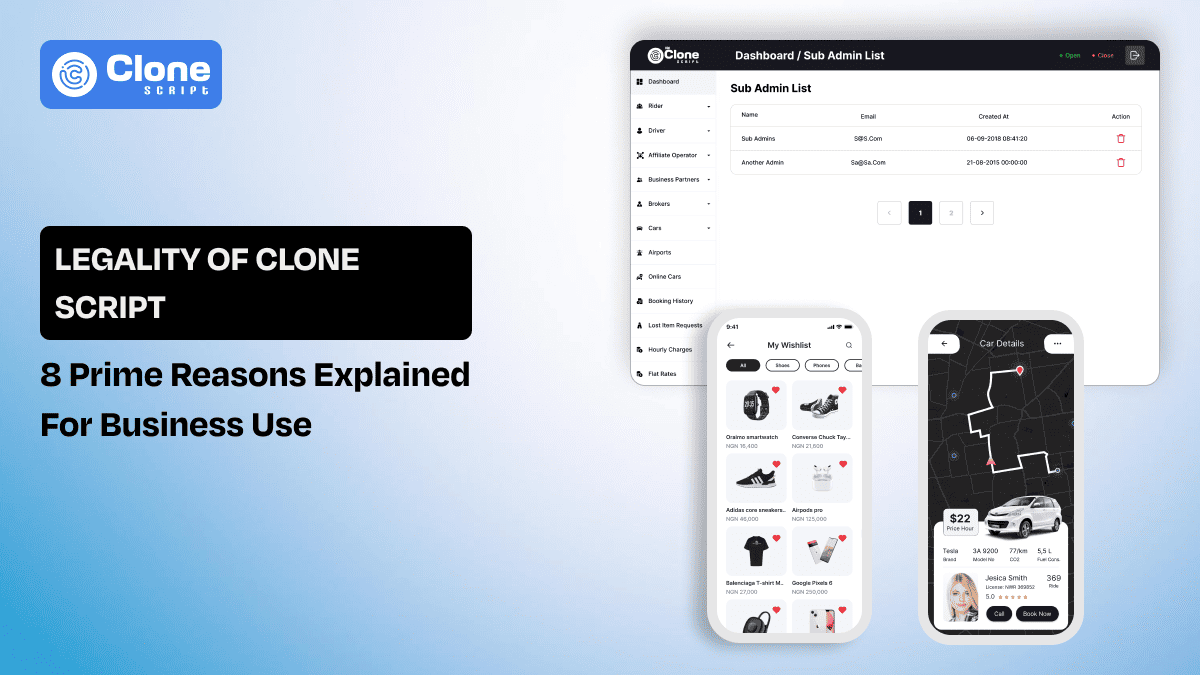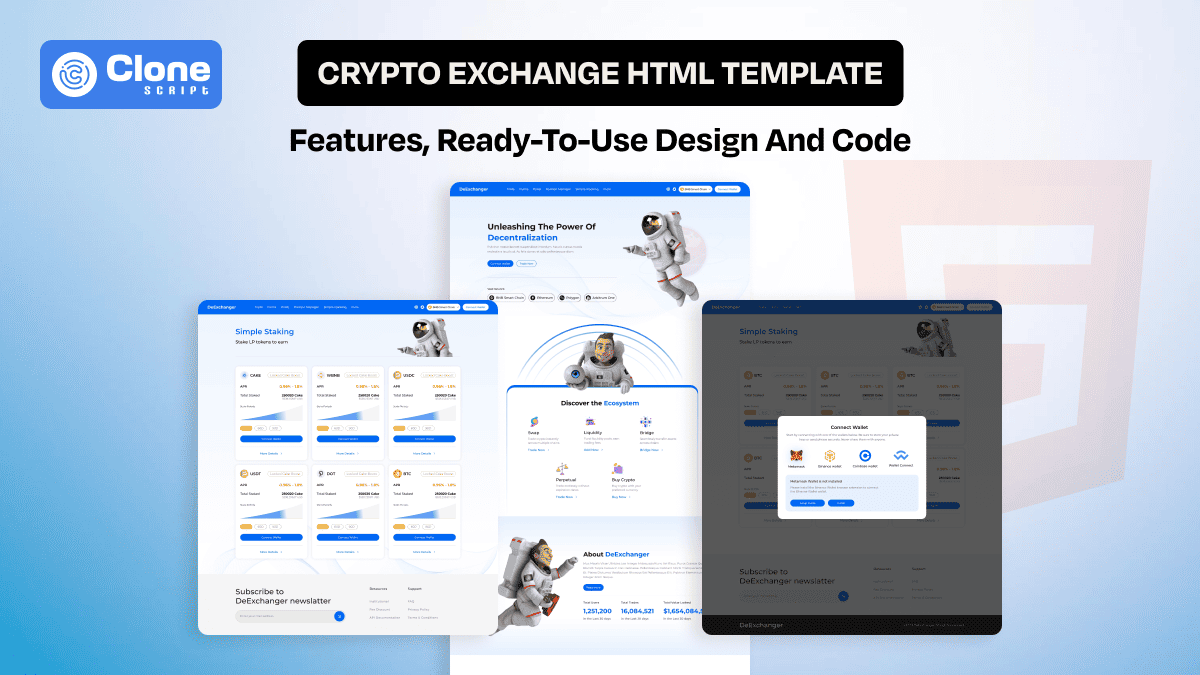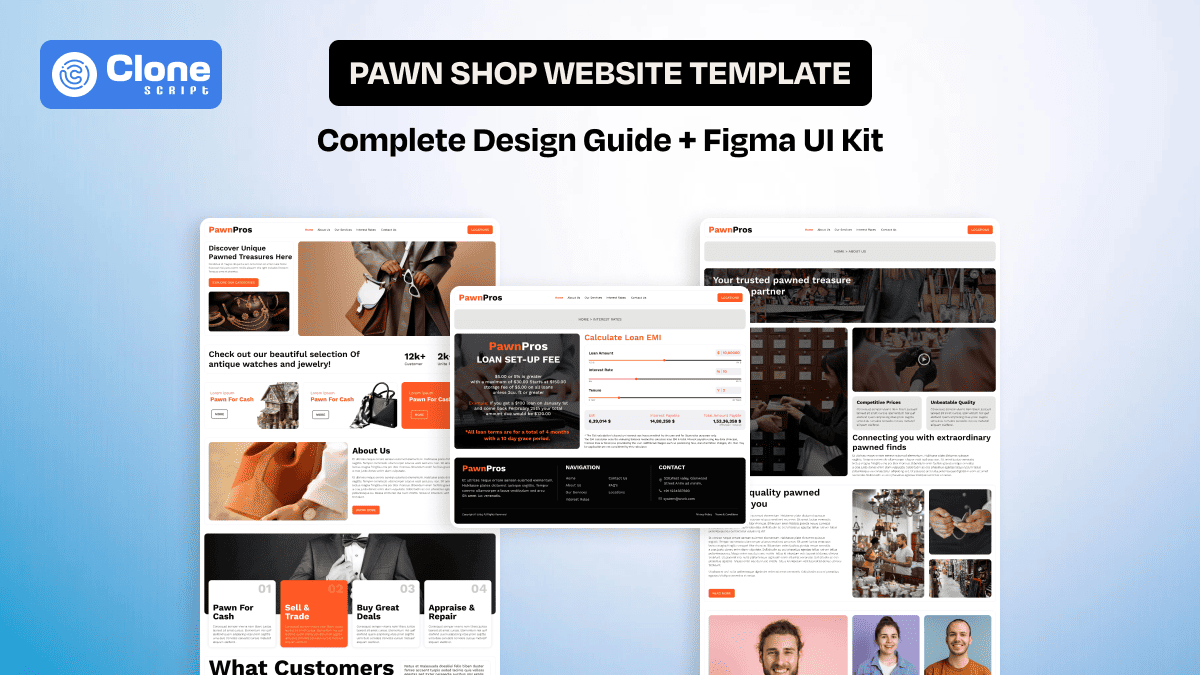Crypto Website Optimization for Search Engines: A Step-by-Step Guide
Ranking your crypto website organically on Google is tough and challenging. But with the right SEO strategy, you can be on the mark. One thing to keep in mind it’s not enough to have the best crypto website design; with it, you have to put effort into making the website optimized for a user experience.
This can be done with search engine optimization, usually referred to as SEO.
This article explains how to get your crypto project noticed by the people who matter most: your users, traders, investors, and the curious crypto crowd.
Whether you’re running a DeFi dashboard, an NFT marketplace, or a token launchpad, optimizing your crypto website for search engines (aka SEO) is important.
Let’s unpack it step by step.
Step 1: Understand the Crypto SEO Landscape.
Choosing a professional SEO service for crypto websites involves more than just keywords. You’re working in a niche that combines finance, tech, and speculation while navigating strict Google policies.
Since cryptocurrency falls under YMYL (Your Money or Your Life), Google evaluates your content for trust, accuracy, and transparency. To stand out, focus on building your website’s authority, offering factual content, and complying with all necessary regulations. Understand that SEO in this space is a marathon, not a sprint.
Why it matters:
-
Crypto users are skeptical, so earning their trust is your priority.
-
Search engines require compliance with financial content standards. The website has to reflect credibility, not suspicious activity.
-
Competition in the cryptocurrency market is fierce, and ranking takes more effort.
When you 100% understand the crypto SEO trends and user intents, you’re taking a step forward for success.
Step 2: Start with a Solid Technical SEO Foundation
Technical SEO ensures your site is crawlable, fast, and user-friendly. Search engines need clean code and a clear structure to understand and rank your pages effectively. Without technical optimization, even the best content can be overlooked.
Checklist for crypto sites:
-
Use HTTPS for security and trust. This is important on the finance website.
-
Ensure mobile responsiveness for all devices. It indicates your Web3 project website can be explored from smartphones, too.
-
Optimize website speed (use lazy loading, compress images). In cryptocurrency, speed is everything, and offering a lightning-fast user experience matters.
-
Create and submit XML sitemaps. This helps a web crawler navigate your entire site and index the pages.
-
Use robots.txt to guide crawlers. This is required to tell the crawlers which web pages have to be indexed and which are to be ignored.
-
Apply canonical tags to avoid duplicate content issues. By clarifying the authentic version of the web page, your site avoids the penalty from search engines.
These basics lay the groundwork for higher search visibility and a better user experience.
Step 3: Conduct Deep Keyword Research (Crypto Style)
Keyword research helps align your content with what users are actively searching for. In crypto, that means going beyond generic terms like “blockchain” or “bitcoin” and targeting specific, intent-based queries.
Keyword research strategy:
-
Start with the broad keywords: “crypto wallet,” “staking platform,” “NFT marketplace,” and “New web3 project.” Using this keyword on the website, including but not limited to email newsletter, social media posts, and every platform where your business is present online.
-
Narrow down the long-tail keywords: “best NFT wallets for Solana,” “how to buy crypto in 2025.” By incorporating relevant keywords like these, you’re moving forward toward great SEO success for your cryptocurrency platform.
-
Use SEO tools: The most popular keyword research tools are Google Keyword Planner, Ahrefs, and Ubersuggest. You can try the free keyword tool by Wordstream, where you can see the keywords, PPC, and difficulty score.
-
Analyze competitors’ ranking keywords. This is helpful to identify keyword gaps in your website, and you can try to rank for them.
-
Prioritize long-tail keywords with lower competition and clear user intent. To rank on search engines quickly, these keywords are useful.
Targeting the right keywords helps your content reach a more relevant, conversion-ready audience.
Step 4: Create High-Quality, Trustworthy Content
Cryptocurrency is a very diverse and difficult field, and terms used in the market can’t be understood by first-time website visitors.
So, what’s the point of this?
Your website content should educate, inform, and build trust.
Avoid hype and vague promises. This field is not running on assumptions, but it’s community-driven.
Crypto readers are skeptical, and search engines prioritize value. Your goal is to create clear, well-researched, and user-friendly content that meets Google’s E-E-A-T guidelines.
Content best practices:
-
Write detailed, accurate guides and tutorials. If you have time, then write it yourself; otherwise, hire a crypto freelancer writer or get a blog writing service.
-
Use real-world examples and credible data to make your site trustworthy and secure to use the service.
-
Structure the outlines with headers (H1, H2, H3). Every page on the website must have a single H1 title tag and subheadings with the H2 and H3 tags.
-
Include visuals, infographics, or explainer videos. Crypto investors, especially beginners, are not as familiar as experienced ones.
-
Keep content updated as markets evolve. At every second, the crypto market feels a quake due to the influence of community platforms like X and news from celebrities.
-
Provide disclaimers or legal notes when necessary. Crypto falls under a digital finance segment, and the loss due to investment in these assets is solely dependent on the market risks.
A strong content strategy builds authority and keeps visitors engaged longer, which positively impacts your SEO.
Step 5: Build Backlinks from Authority Sources
You might have a question about what makes a good backlink, right?
Good backlinks act as endorsements from other websites. The more high-quality backlinks you have, the more search engines see your site as credible. In crypto, where scams are common, authority matters even more.
How to build quality backlinks:
-
Write guest posts for popular crypto blogs. Find the relevant guest post websites with high domain authority and a low spam score. Usually, paid guest posts are worth more than a free website because the content has been moderated by experts before going live.
-
Submit to reputable crypto directories. The directories are a great tool to list your website, where users are searching for the best crypto website to start trading and investing.
-
Get featured in crypto news (e.g., CoinTelegraph, CoinDesk). If you have a budget to invest in content marketing, you can contact a reputable web3 news website for a press release.
-
Publish data-driven reports that others can cite. With facts and stats-packed analysis, your website can become a trusted source to link to.
Step 6: On-Page Optimization Checklist
When opting for an expert on-page SEO service for your new meme coin website project, you have a question about it: why is it required?
On-page SEO is a practice to optimize each page for both users and search engines. It’s about refining every element, from titles to internal links, to maximize visibility and engagement.
Essential on-page elements:
-
Title tags: Include keywords, stay under 60 characters. The title has to be optimized for clicks and user-driven values.
-
Meta descriptions: Write a compelling summary of the web page (150–160 characters). Use keywords and a call to action to convince a user to click.
-
Headings: Use H1 for titles, and H2/H3 for subtopics. Don’t over-optimize the titles for less trustworthiness.
-
Internal links: Connect to related posts or tools. Add links to services and blogs to help users navigate the website easily.
-
Image alt text: Describe images with relevant keywords. It is considered the best SEO practice and improves the user experience.
-
Structured data: Enhance with a schema for rich results. To boost the organic positions of the web page and help search engines understand it, the markup is required.
Optimized pages rank better and guide users through your content more effectively.
Step 7: Prioritize User Experience (UX) and Engagement
Great SEO doesn’t stop at ranking. If users click but bounce, your SEO takes a hit. A well-designed user experience for a crypto website encourages longer visits, lower bounce rates, and more conversions.
UX optimization tips:
-
Fast-loading pages (under 3 seconds). Especially when the user browses the website on a mobile device.
-
Clear menus and navigation bars. Every user has to find the information they’re looking for quickly.
-
Strong CTAs like “Sign Up,” “Buy Now,” or “Learn More.” To inspire users to take the actions you want from them, add these calls to action where they can be easily identified.
-
Add interactive tools like crypto calculators and live token trackers. Users are not interested in a stuffy and technical language to know the crypto rates.
-
Add trust signals, including team bios, audits, roadmaps, and real user reviews. It can help users to decide whether to explore your platform or move to another one.
Engaged users spend more time on your site, signal quality to search engines, and are more likely to convert.
Step 8: Monitor, Measure, and Improve
Crypto SEO is ongoing. Regular monitoring helps you understand what’s working and where improvements are needed. Data-driven decisions allow you to adjust your strategy and maintain long-term rankings.
Tools to monitor performance:
-
Google Search Console: This free SEO tool is useful for keyword rankings and identifying crawl issues.
-
Google Analytics 4: To know user behavior, traffic sources on the website using this tool can be identical to create a strategy for better results.
-
SEMrush/Ahrefs: Using these freemium SEO tools is a good choice for backlink audits and keyword gaps.
-
Hotjar: To understand where users mostly click on the website, this tool provides visual heat maps of user interactions.
Track key metrics:
-
Organic traffic growth.
-
Average session duration.
-
Conversion rates.
-
Bounce rates.
-
Ranking improvements over time.
Use this data to refine your keyword focus, content structure, and backlink outreach.
Step 9: Stay Ahead of Crypto + SEO Trends
Both crypto and SEO evolve constantly. New coins, Google updates, and user behavior changes can all impact your rankings. Staying informed ensures you can pivot fast and avoid falling behind.
How to stay updated:
-
Subscribe to SEO blogs (Search Engine Journal, Moz). Also, stay updated with the latest news or attend the SEO webinars held by experts.
-
Follow crypto news sites (CoinDesk, Decrypt). It can help you to know newly launched coins or updates in the crypto wallets.
-
Join SEO + crypto communities on Reddit, X, and Discord. So, even if a new feature is introduced to the crypto market, it can be integrated into your website for quick attention.
-
Monitor Google algorithm updates via Search Central. It’s hard to track an algorithm update 100%, but with A/B testing, helpful content prioritizing, and user experience is always winning during the rollout of the search updates.
-
Attend industry webinars and AMA sessions. You can learn new technical terms related to crypto and educate your audience in the simplest way.
Continual learning gives you a competitive edge and helps you catch emerging trends before they go mainstream.
Conclusion
Crypto SEO is a strategic, long-term investment. With millions of searches happening daily from NFT enthusiasts to first-time investors, your site needs to be visible, trustworthy, and fast. By following these nine steps, you position your brand to attract organic traffic, build authority, and convert more users.
Remember:
-
Start with a strong foundation.
-
Create content that informs and earns trust.
-
Optimize each page and every user interaction.
-
Track, learn, and evolve.
With consistency and smart execution, your crypto website can rank high, convert better, and grow sustainably, even in the most competitive niches.
Schedule a free consultation to make your crypto platform rank on 1st page of search engines.
 BTC - Bitcoin
BTC - Bitcoin
 USDTERC20 - USDT ERC20
USDTERC20 - USDT ERC20
 ETH - Ethereum
ETH - Ethereum
 BNB - Binance
BNB - Binance
 BCH - Bitcoin Cash
BCH - Bitcoin Cash
 DOGE - Dogecoin
DOGE - Dogecoin
 TRX - TRON
TRX - TRON
 USDTTRC20 - USD TRC20
USDTTRC20 - USD TRC20
 LTC - LiteCoin
LTC - LiteCoin







